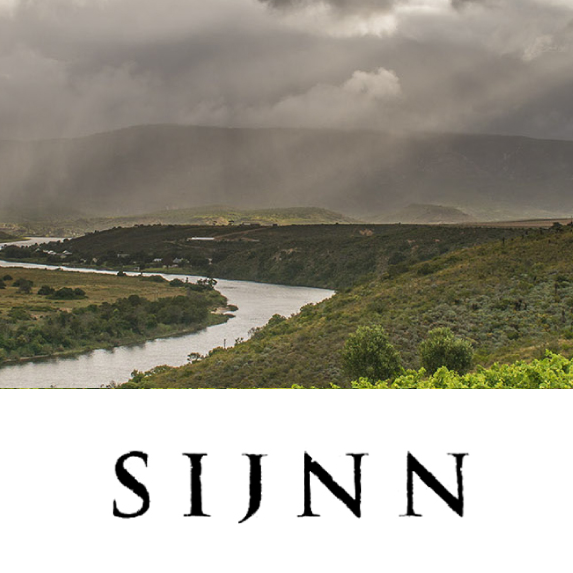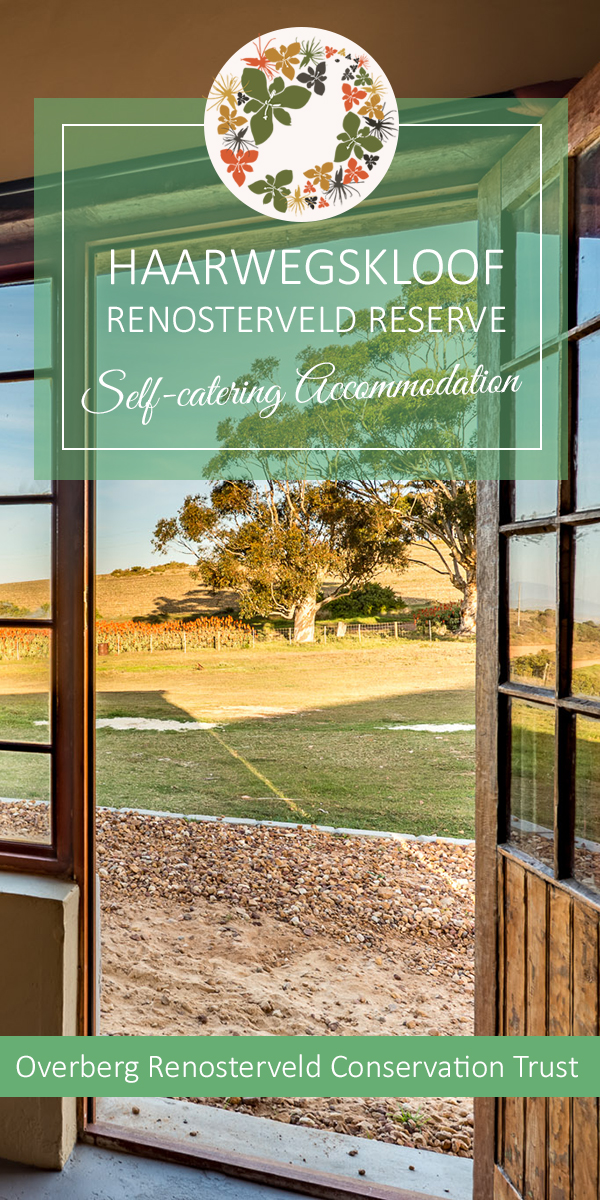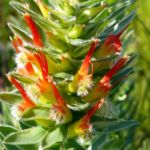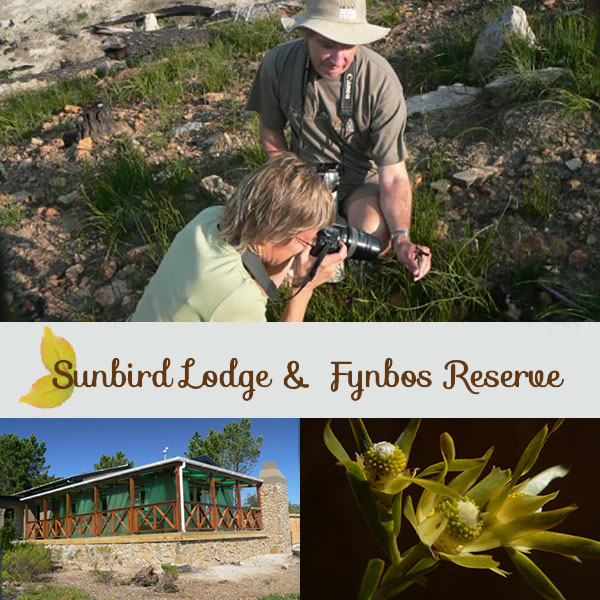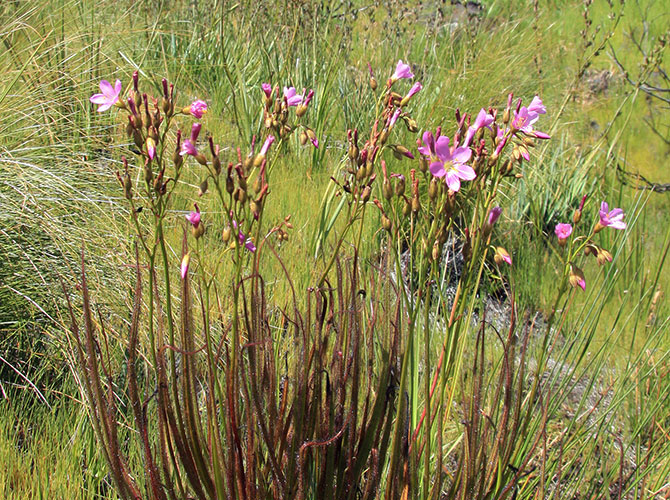
Conserving the triffids…..
The photo above shows Drosera regia, the king sundew, growing wild in its natural habitat. It is incredibly rare, only occurring in one valley in the Cape Fold Mountain Range of South Africa. There are just two populations with a small number of individuals, making this the most endangered species of Drosera in the world and it is threatened with extinction in the wild.
Drosera regia, like all sundews, is an insectivorous plant. This species, however, is much larger than others in the genus. The leaves (that can reach up to 70 cm in length) are covered with ‘tentacles’ that exude a sticky sweet mucilage that can attract and capture relatively large prey, such as beetles, moths and butterflies.
As prey is caught the tentacles move towards the centre of the leaf to curl around the insect. Those unfortunate enough to be caught succumb to death through asphyxiation or exhaustion. The plant then secretes digestive enzymes that dissolve caught prey to leave a ‘nutrient soup’ that is absorbed to enhance plant growth.
I was lucky enough to meet this triffid of the plant kingdom in person two years ago. However, the excitement of having the privilege of seeing it in the wild was marred by the realisation that the population was highly threatened by alien invasive pine trees.
The range where it is endemic is conserved by CapeNature as a reserve. However, owing to a shortage of funds combined with inaccessibility there is extensive alien pine tree growth on the surrounding mountain slopes. These trees had spread perilously close to the Drosera regia seep and were near enough for seed to spread and germinate in profusion after the next fire.

Above: Disa uniflora. Photo © Zoë Chapman Poulsen.
Word of a giant insectivorous plant in peril was enough to mobilise the troops and a few months later after approval from CapeNature I revisited the site along with a team of students from the University of Cape Town’s Department of Botany, Biological Society and the conservation wing of the UCT Mountain and Ski Club.
Our aim was to clear the worst of the pine tree growth threatening the Drosera population. So we abandoned the bright lights of Cape Town for the weekend and headed off to the mountains. Armed with bow saws we set off early the next morning only to encounter our first obstacle.
The winter rains had come to the Cape unusually late that year and the river below our accommodation was flowing strongly and fast. It wasn’t possible to cross over at the usual spot and so we had to fight our way through a thicket of alien Acacia dealbata to access the river bank. From there we cautiously navigated our way across the raging torrent from rock to rock and eventually arrived on the other side soaking wet but happy.
Our path took us steeply up the valley with spectacular waterfalls on the higher reaches of the river visible in the distance. We diverted briefly to explore some amazing rock formations near the trail and marvelled at the first summer Disa uniflora in flower (see above) along the many ephemeral streams we crossed along the way. Several hours later we reached the site and set to work.
Many hands made light work and we managed to clear the majority of the pine trees immediately threatening the population. For now one fewer plant species is a little less under threat thanks to a hard day’s work.
However, the work is far from done and owing to a recent burn in the area the site will require periodic revisiting for follow-up clearance of pesky pine tree seedlings. But it is great to know that thanks to a little targetted conservation effort there will still be giant carnivorous plants in the Cape Mountains in years to come. We celebrated that evening around a roaring fire over a glass of wine and baked bean curry!
Find me on Instagram
Plant Information
Connect on Social
Connect on Facebook, Twitter and Instagram
Taking Action
There are many environmental organisations based in Cape Town and beyond that require the services of volunteers to undertake their work. So if you have a little time to spare please get involved.

